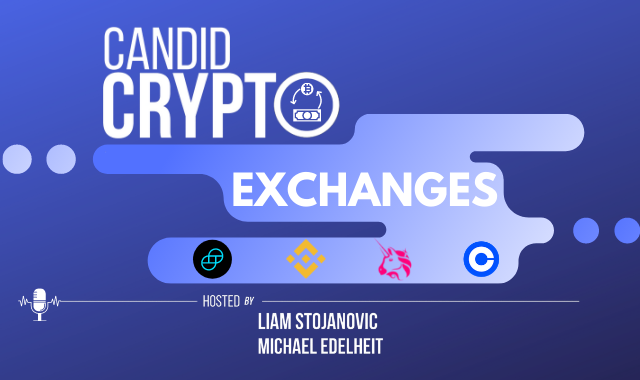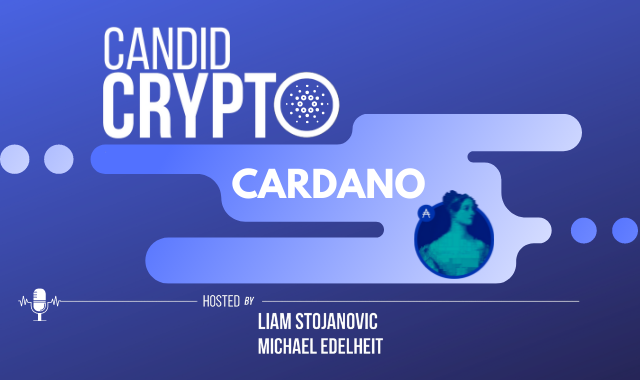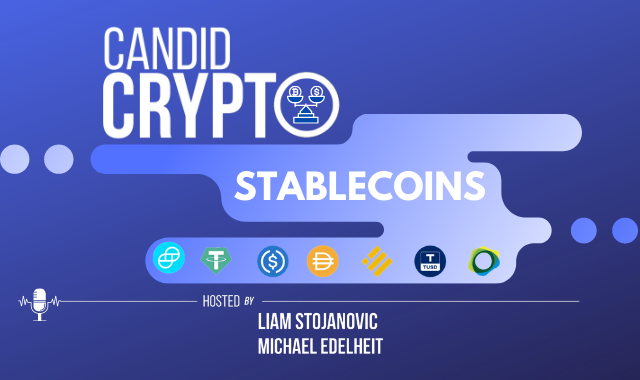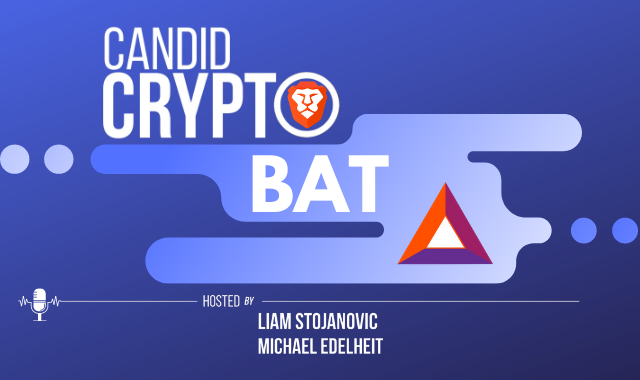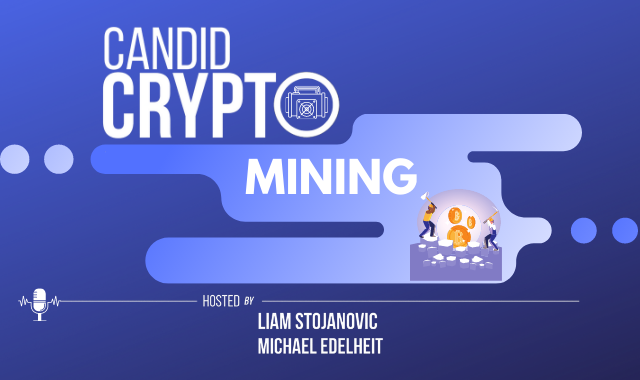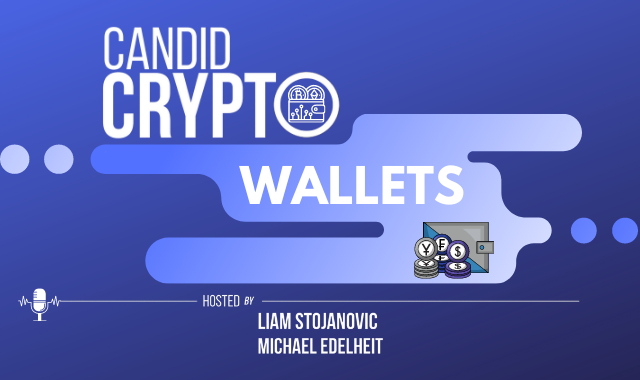004: Exchanges
Everything exchanges. What does know your customer (KYC) mean? What makes an exchange centralized vs decentralized?
Please leave a comment and let us know what you think about this episode. You can find Candid Crypto on all your favorite podcast platforms, so please like and subscribe to stay up to date on everything crypto!
In addition, every Candid Crypto episode is transcribed so you can easily understand everything that was discussed.
Episode Transcription – Exchanges
Michael 00:00
Welcome to another episode of Candid Crypto. Today Liam and I are going to talk about cryptocurrency exchanges. For anybody that is not aware exchanges are where you buy and sell crypto. There are a handful of very popular platforms where even your grandma could buy cryptocurrency. And today, Liam and I are going to just discuss our own experiences and the few different nuances between each exchange. Hope you enjoy. Liam, kick us off.
Liam 00:32
There’s a whole lot of exchanges out in the space. And it can be hard to pick one that’s right for you. If you’ve been around cryptocurrency, you’ve probably heard of the name Coinbase, maybe Gemini, and maybe Binance.
Coinbase is by far the most prolific and largest company for buying Bitcoin through a centralized exchange in the United States. And yeah, Michael, what exchanges have you used in the past?
Michael 01:01
I’ve used Coinbase, I mainly use Gemini. And then I’ve used some of these other platforms like Robinhood, but I know you could also buy Bitcoin now on Pay Pal and things like Cash App. I guess its good and bad because it gets people more exposed to cryptocurrency and they can easily get it. But I’ve noticed that with some of those other apps, it’s harder to withdraw your money, which it’s something that I try to avoid. Obviously, I want to have control over my cryptocurrency.
Liam 01:37
Purchasing crypto on Robinhood party [unintelligible 01:40]. What crypto was it?
Michael 01:46
On Robinhood?
Liam 01:47
Did you buy Doge?
Michael 01:48
Oh, yeah, dude, I bought Doge. To be honest I bought Doge on Robinhood. And I wish I could say I made 10s of 1000s of dollars off of it. But I didn’t. I think I made like 100% return, which is compared to stocks. That’s amazing. But yeah, Robinhood, I try to avoid I mean, they have security issues. They have server issues. They’re not always up when, like, they limit that. They conveniently go down when prices go up. Or go down drastically. You know, it’s pretty frustrating. What about you, Liam? What are your main exchanges?
Liam 02:33
I’ve been pretty heavy on Gemini for 5 years now, 4 years now. I’ve been using them since 2016.
Michael 02:41
That’s what I figured. Because you actually told me to start using Gemini. And I haven’t looked back.
Liam 02:47
I just from the very beginning, Gemini had a sleek clean interface. I never had problems moving money to or from the exchange. And I wish I could say their customer service was good. But I have no idea how the customer service is. I’ve never had to deal with them once because the platform has always worked as advertised. And then I’ve used Binance also FTX. The United States versions for both of those.
Michael 03:14
And what about the first exchange that you ever used? I love this fact.
Liam 03:17
Oh, Coinbase but-
Michael 03:19
Oh, I thought you used Magic the Gathering?
Liam 03:21
Oh, yes. My first exchange technically was Mount Gox [phonetic 03:26] Magic, the Gathering Online Exchange. That was I had to wire money to Japan. And as a teenager, I was prohibited from sending wires. So I called my parents and we got the money sent
Michael 03:42
Damn! Back when Bitcoin was a wee little baby.
Liam 03:47
Totally, yeah, that’s when it was in the 10s of dollars. So all those exchanges we just talked about fall into centralized, those are all Centralized Exchanges.
“A Centralized Exchange means that you have to register. And when you register, you provide what is known as KYC in the United States, or know your customer.”
That really means showing them your ID.
Michael 04:10
Which is fine.
Liam 04:11
Yeah, it’s like getting into a club, you know, you show the bouncer, your ID, and then you can go in and spend as much money as you want.
Michael 04:16
But what I’ve experienced is, with these centralized exchanges, the value is in the user interface. And the fact that it takes a few… I mean, registering doesn’t take long, but it doesn’t take a very long time to actually get on the platform and start buying Bitcoin, which to someone who is trying to already get into a complicated and technical space. It’s nice to know that there are companies that are trying to make it as easy as possible.
Liam 04:46
Michael, you said it earlier, your grandma could use Coinbase, it’s really stupid simple.
Michael 04:51
Yeah. And the same thing with Gemini and Binance is the same way but I’ve heard it’s a little bit more technical.
Liam 05:00
Yeah.
Michael 05:02
And then what are the examples of a Decentralized Exchange? And what exactly is that?
Liam 05:08
Decentralized Exchanges do not require you to register, all you have to do is connect your cryptocurrency wallet. By connect, I really mean that it asks for you to use your browser extension, typically Metamask, which is a popular cryptocurrency wallet, you connect it to the website, and then you are able to interact with the various financial tools that are available on a Decentralized Exchange. Uniswap is an example of a Decentralized Exchange.
Liam 05:37
“It is a set of software and smart contracts that allow you to trade cryptocurrency, loan your cryptocurrency to other people or borrow cryptocurrency from the platform.”
That wasn’t possible prior to the DeFi and Ethereum boom that we’ve seen over the past year so. These products have existed for a few years now. But Uniswap got really popular the past year.
Michael 06:04
Yeah, like all cryptocurrencies it’s pretty mainstream now.
Liam 06:07
Yes.
Michael 06:08
And I’ve never used these Decentralized Exchanges but what is the user experience?
Liam 06:14
I would say it’s really well done. There’s pretty intuitive, simple interfaces. Sometimes there’s a little bit of ambiguity with what exactly you’re doing on the platform, like providing liquidity. That’s a little bit more complicated, but the overarching UI UX, very pleasant, pretty easy to use.
Michael 06:33
Okay. I’m definitely very interested. And in the spirit of all things, crypto, if it can be decentralized, why not? I was just a little bit nervous because I thought they were a little bit more technical.
Liam 06:43
Oh, yeah. I personally purchased Ether, like the past year, so I can play with DeFi products. I’m not like a whale. I’m not playing with big blocks [phonetic 06:53]. But I like to put money into these things because I want to participate in the new ecosystem of cryptocurrency services.
Michael 07:04
Yeah, and I mean, they both have their pros and cons. And overall, if you want to get in quick Coinbase, Gemini you can’t go wrong. Centralized is just as fine as Decentralized. But I think it is good to know the difference
Liam 07:19
Totally. And one other thing to note about centralized exchanges, there are a couple like PayPal, or Robinhood, that don’t let you withdraw your funds to an external wallet, you typically want that functionality. Even if you don’t plan on ever actually using the cryptocurrency yourself and having it in your own wallet. Knowing that you can withdraw it is a lot better than the sites claiming that your cryptocurrency exists and is a holding of theirs, but not actually seeing it or being able to use it yourself.
Michael 07:50Yeah, and I kind of mentioned that earlier when I was talking about my Robinhood experience with node. But overall, it’s good to know you want to own your crypto, and exchanges are a great way to buy it. But you have to keep in mind that it’s really important to transfer it into your wallet. With that being said, I think that’s going to be a wrap for us today on exchanges. If you have any other questions, please reach out to us on social media. And you can always find us at our website @CandidCryptoPodcast.com. Liam has spent a lot of time making it very mobile friendly. So check it out, and reach out to us. We’re not financial advisors. We don’t give any financial advice but we do like engaging with everybody that listens. Tune in next week to Candid Crypto.

